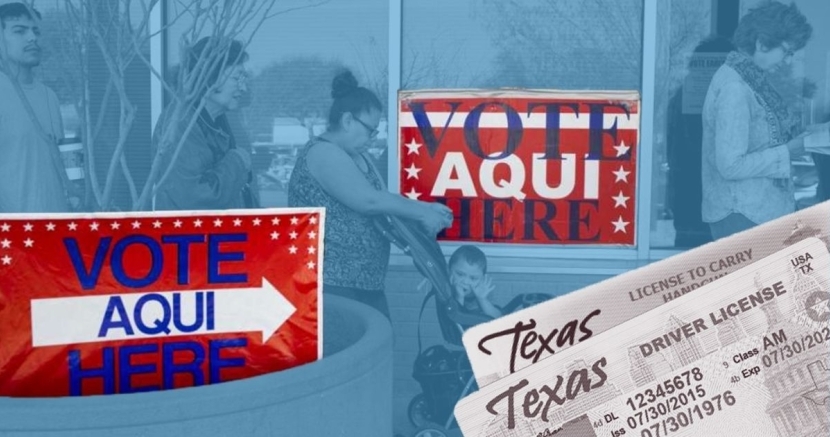You do not need a Texas driver’s license to register to vote.
If you’ve recently moved to Texas from out-of-state, and have yet to update your driver’s license, you can still register to vote in Texas as long as you have an in-state address. You can find more info on how to register to vote at GoVoteTexas.org.
Your driver’s license doesn’t have to have a star on it.
In 2016, Texas started issuing Real ID-compliant driver’s licenses. The licenses feature a gold circle with a star imprint.
These new driver’s licenses are needed to fly domestically as part of the Real ID Act Congress passed in response to 9/11. However, they are NOT necessary for voting; old driver's licenses will still be valid for state-related purposes like driving, banking, and voting.
In fact, with the exception of the U.S. Citizenship Certificate, for voters aged 18-69, photo IDs can be expired for up to 4 years before and still be presented for voter qualification at the polling place. For voters 70 years of age or older, photo IDs can be expired for any number of years, as long as the identification is otherwise valid.
There are multiple forms of ID that voters can use.
When you arrive at the polling place, you will be asked to present one of the following seven (7) forms of photo identification:
- Texas Driver’s License issued by the Texas Department of Public Safety (DPS)
- Texas Election Identification Certificate issued by DPS
- Texas Personal Identification Card issued by DPS
- Texas Handgun License issued by DPS
- U. S. Military Identification Card containing the person’s photograph
- U.S. Citizenship Certificate containing the person’s photograph
- U.S. Passport (book or card)
Remember, with the exception of the U.S. Citizenship Certificate, these IDs can be expired for up to four years and still be used to vote.
If you are registered to vote but do not have any of the seven forms of photo ID listed above, you can complete and sign a “Reasonable Impediment Declaration” form at the polls. The form allows you to vote a regular ballot if you present a copy or original of one of the following identification alternatives:
- A government document that shows the voter’s name and address, such as a voter registration certificate
- Current utility bill
- Bank statement
- Government check
- Paycheck
- A certified domestic birth certificate (from a U.S. state or territory) or a document confirming birth admissible in a court of law which establishes the voter’s identity (which may include a foreign birth document)
Registered voters without photo ID, who present one of the alternate documents listed above and sign the declaration form, should be able to vote using a regular ballot.
What if my ID address does not match my current voter registration address?
That's fine. Your address doesn't need to match, just your name.
The state does not accept student IDs for voting purposes.
Unfortunately, Texas does not consider student IDs a valid form of ID for voting. This is purposeful, and a tactic to suppress college voters.
Student IDs have a photo and are issued by accredited institutions, meaning they should be just as valid as a Texas handgun license. Democratic lawmakers in the Texas legislature have introduced multiple bills over the years trying to get this rule changed.
You must take your ID with you to vote.
If you’re voting in person, you must take your ID with you so that you can present it to the poll workers.
However, if you’re eligible to vote by mail and choose to vote by mail, then a photo ID isn’t necessary. You must be registered to vote and fill out the mail-in voting application. When filling out your mail-in voting application, you must include either a Texas driver’s license number or the last four digits of your social security number. The number you use must match the one you used on your voter registration application. If you don’t remember whether you used your license or social security number, we recommend writing both.
You can apply for a mail ballot here.
If you have any questions or difficulty voting, call:
- 866-OUR-VOTE — English
- 888-VE-Y-VOTA — Spanish
- 844-YALLA-US — Arabic
- 888-API-VOTE — Asian & Pacific languages
- 301-818-VOTE — American Sign Language video
- or text “OUR VOTE” to 97779
These Election Protection hotlines are staffed by trained, nonpartisan volunteers. Voter harassment is prohibited by law. That means election officials cannot question a voter about the use of an ID type, and poll watchers may never question a voter about voter ID issues.
DONATE
Your donation supports our media and helps us keep it free of ads and paywalls.









